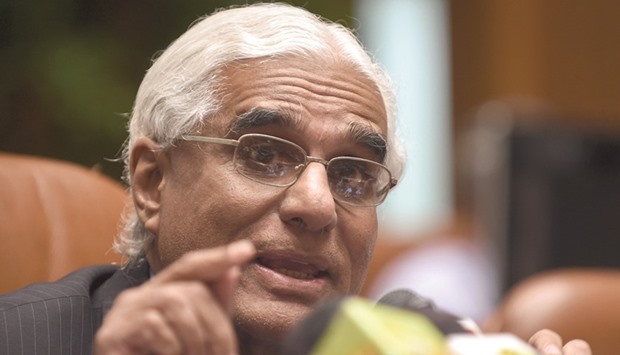Sri Lanka’s new central bank chief pledged yesterday to maintain the monetary authority’s independence in decision making and to avoid policies that lead to boom and bust cycles.
Indrajith Coomaraswamy, a former central banker, became the 14th governor of the central bank when he took office on Monday for a six-year term. President Maithripala Sirisena appointed the veteran economist to help quell uncertainty after the previous governor declined to seek reappointment.
Successive Sri Lankan leaders have appointed central bank heads of their choice outside the monetary authority or civil service since 2004. The political appointments have sometimes been criticised as being biased towards governments in power.
“I have spoken to our leaders too about this that the central bank does its work independently and in a technical way and discreetly advises the government about what we think is the best way forward ... which the central bank has responsibility,” he told the staff in his inaugural speech.
He also said the central bank needs to get away from a cycle of stop-go policies of creating artificial periods of boom through misaligned policies.
The 66-year old Coomaraswamy was a former director of economic affairs at the Commonwealth Secretariat. He faces stiff challenges, including stabilising a faltering rupee, averting a balance of payments and debt crisis and boosting a sluggish economy.
Many civil society organisations and political parties, including the opposition, have welcomed Coomaraswamy’s appointment.
Arjuna Mahendran, the former central bank chief who took up his post in January 2015, stepped down on Thursday amid a corruption investigation that embroiled his son-in-law in a bond scam. Mahendran has denied any wrongdoing, but the ongoing investigations have perturbed financial markets.
Volatility in the rupee currency seen last week calmed down after Coomaraswamy’s appointment as markets expect some key policy changes from the new governor, dealers said.

Indrajit Coomaraswamy addressing reporters at the Central Bank in Colombo yesterday.
